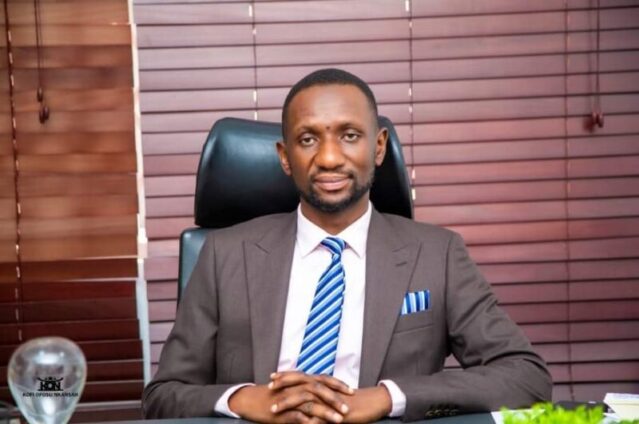The Chief Executive Officer of the National Entrepreneurship and Innovation Programme (NEIP), Kofi Ofosu Nkansah, has revealed that the government spends approximately GH¢9,000 on each student enrolled on the Free Senior High School (SHS) programme.
This investment covers the educational needs of students across various public schools, ensuring access to secondary education without financial barriers.
According to the NEIP CEO, the substantial expenditure reflects the government’s commitment to providing quality education to all Ghanaian students.
In addition to Free SHS students, Mr Nkansah disclosed that the government allocates over GH¢9,000 per Technical and Vocational Education and Training (TVET) student.
This amount, he noted, is slightly higher than the investment in SHS students, due to the specialized nature of TVET education, which requires additional resources for practical training and technical equipment. The aim is to equip TVET students with the skills needed to thrive in technical fields and contribute to Ghana’s industrial growth.
Mr Nkansah highlighted that these expenditures are part of the government’s broader vision of improving access to education and building a skilled workforce.
The Free SHS and TVET programme are seen as crucial pillars in developing human capital, reducing inequality, and preparing students for the job market.
In a Facebook post on Wednesday, October 9, Mr Nkansah also emphasised that education remains a priority for the current administration, as it plays a pivotal role in the country’s socioeconomic transformation.
Despite the significant expenditure, the NEIP CEO expressed confidence that the long-term benefits of the Free SHS and TVET programmes would far outweigh the cost.
He noted that the government’s continued investment in education would lead to a more skilled and educated population, which is essential for driving national development and innovation.
“On average, the government spent Ghc 8,936/9,808 on an SHS/TVET boarding student for 3 years using 2021 academic year rates.”
“People who cannot save 10,000 cedis their entire life are getting their children educated for free. Impacting generations,” he posted.
Latest Stories
-
Academic City unveils plastic recycling machine to address plastic pollution
14 mins -
German-based Kanzlsperger makes medical donation to WAFA
2 hours -
It could take over 100 years for Ghana and other African countries to become ‘developed’ – Report
2 hours -
AEC 2024 renews momentum to lift Africa out of poverty despite global shocks
2 hours -
Can RFK Jr make America’s diet healthy again?
2 hours -
Maiden Women in Chemical Sciences conference opens with a call for empowerment
5 hours -
We’ll reclaim all Groupe Nduom stolen assets – Nduom declares
5 hours -
Center for Learning and Childhood Development Director Dr Kwame Sakyi honoured at Ghana Philanthropy Awards
14 hours -
Asantehene receives 28 looted artefacts
14 hours -
CAF WCL 2024: Ghana’s Thelma Baffour wins title with TP Mazembe
15 hours -
Benjamin Boakye slams politicisation of energy sector issues and ECG’s inefficiencies
15 hours -
Erastus Asare Donkor and Dr Neta Parsram win big at 10th Mining Industry Awards
16 hours -
Government is “suppressing information” about power sector challenges – IES Director
16 hours -
Majority of our debts caused by forex shortfall – ECG Boss
16 hours -
Pan-African Savings and Loans supports Ghana Blind Union with boreholes
17 hours

